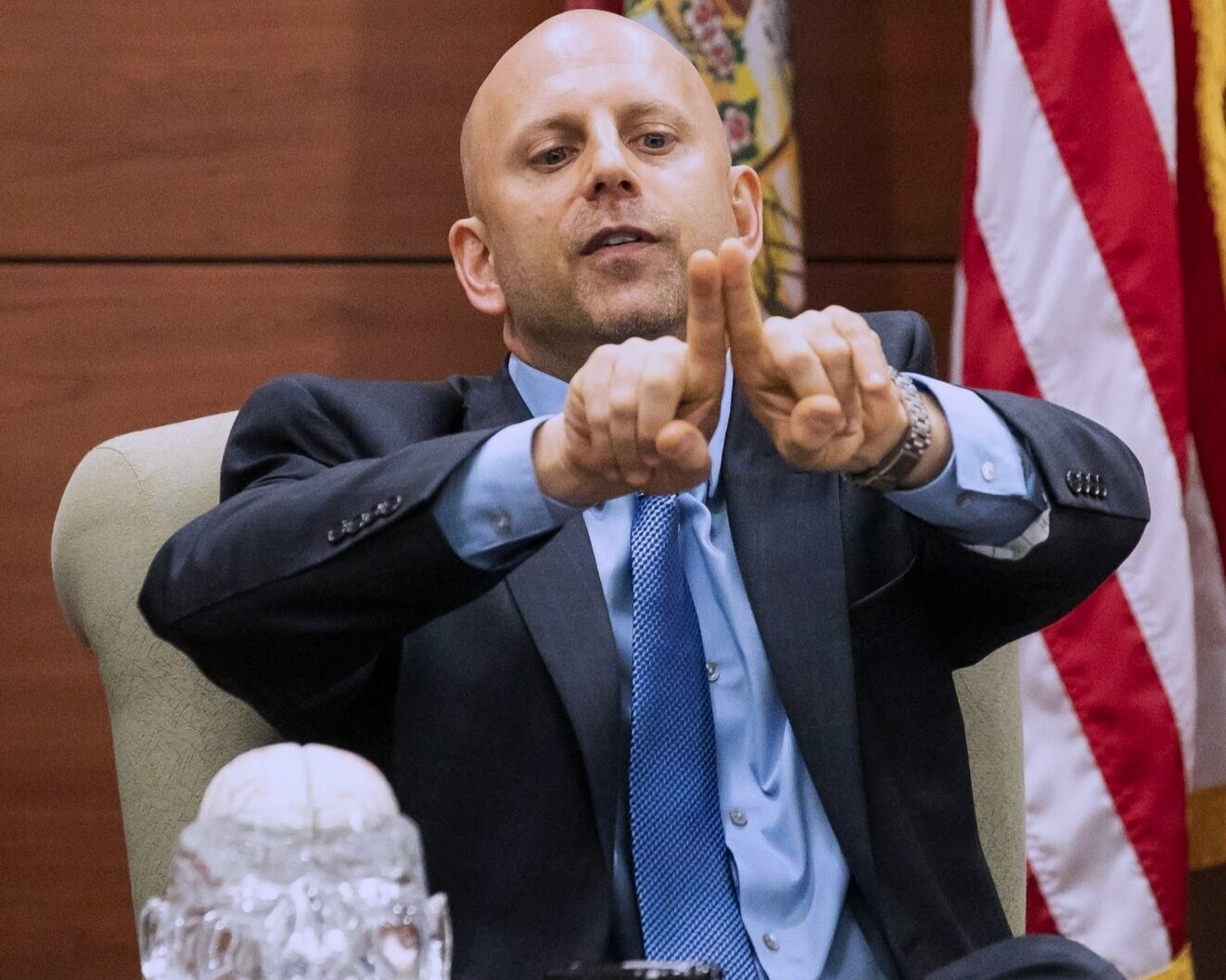Forensic Neurologist & Medical Expert Witness
19 Years Experience, 350+ Cases, 100+ Court Appearances
Committed to unbiased, comprehensive neurological evaluations based on scientific and data-driven facts/objective findings, Neuroscience Practice Institute (NPI) is dedicated to minimizing/eliminating opinions in forensic matters and to the developing and advancing forensic neurology as a nascent subspecialty of neurology, Our operating principle is the presentation of material in the courtroom such that it “speaks for itself.”
Through comprehensive forensic neurological history and physical evaluations (5 to 6 hours per examinee), anatomical imaging studies, including qualitative/subjective MRI interpretations/”reads” and quantitative/objective MRI analyses such as NeuroQuant and other, algorithm-driven, database-derived automated and “blinded” services), CT scans and conventional radiographs, functional studies, including fMRI, PET and SPECT scans & Video EEG Telemetry, serum and CSF (Cerebrospinal Fluid) laboratory studies and neurophysiological procedures, including Video EEG Telemetry and Evoked Potentials, NPI delivers litigation support and expert testimony with a proven track record.
Neuroscience Practice Institute (NPI) offers a broad range of neurological expertise and legal counsel experience, covering the gamut from common neurological conditions to rare and complex diseases to multifactorial conditions affecting the central nervous system.
NPI testifies in personal injury, malpractice, state and federal criminal cases, with experience in cases ranging from the sequelae of trauma to the brain and spine, to iatrogenic wrongful death, to capital mitigation, and has a quantifiably proven track record with 100+ court appearances to date.
At Neuroscience Practice Institute, we strictly utilize the most cutting-edge, trusted and objective resources to provide the court a rigorous assessment and summary of your client’s issues, e.g. MRI Brain quantitative volumetrics via NeuroQuant, serum and CSF laboratory evaluations of congenital and acquired intellectual and behavioral disabilities, unbiased neurophysiological studies (EEG, polysomnography, evoked potentials) and a unique, quantitative approach to record review.
Services
Criminal and Civil Proceedings
Medical Record Review
Comprehensive History
Physical Examinations
Clear & Persuasive Jury & Bench Trial Presentations
Practice Areas
Criminal Cases
Traumatic brain injury, neurodegenerative disorders Genetic, idiopathic & acquired neurodegenerative disorders
Neurodevelopmental disorders (genetic, congenital, acquired)
Acquired & genetic dysmorphisms
Post-partum toxic & infectious exposures: chemical epilepsy syndromes: inter-ictal & Post-ictal Behavioral States
Autoimmune diseases (central nervous system)
Arachnoid cysts & other benign central nervous system lesions
Malignant lesions (central nervous system)
Malpractice
Surgical Interventions with Suboptimal Neurological Outcomes
Medical Treatment Plans and Prescriptions
Iatrogenic Mania
Iatrogenic Delirium
Unauthorized/Inappropriate Medical Procedures
Personal Injury
Short & Long-Term Disability Prognosis
Traumatic Brain InjuryTraumatic Spine & Peripheral Nerve Injury
Competency
Certified Florida forensic examiner
Perform CCAP's: Clinical Competency Assessment
(FL Statute Number 775.027) NGIND (Not guilty due to Irreversible Neurological Deficits) not NGI (Not guilty due to Insanity).
Worker’s Compensation
15+ years of experience, objective assessment, confirmable conclusions
Forensic Neurology in Latest Research & News
Forensic Neurology: Practice Considerations and Training Opportunities” [2024]. https://www.neurology.org/doi/10.1212/WNL.0000000000209560
Forensic Neurology: A Distinct Subspecialty at The Intersection of Neurology, Neuroscience, and Law” [2024]. https://www.nature.com/articles/s41582-023-00920-0
Forensic Neurology and the Role of Neurologists in Forensic Evaluations” [2024]. https://jaapl.org/content/early/2024/04/30/JAAPL.240023-24
Recognizing and Reducing Cognitive Bias in Clinical and Forensic Neurology” [2015]. https://www.ncbi.nlm.nih.gov/pmc/articles/PMC5762024/
MRI Brain Quantitative Volumetric Analysis: NeuroQuant & NeuroGage
Temporal Lobe Epilepsy: Quantitative MRI Volumetry in Detection of Hippocampal Atrophy.” [2012]. https://www.ncbi.nlm.nih.gov/pmc/articles/PMC3401351/
NeuroQuant: Man versus Machine Part 1. “Man Versus Machine: Comparison of Radiologists’ Interpretations and NeuroQuant® Volumetric Analyses of Brain MRIs in Patients With Traumatic Brain Injury” [2013]. https://pubmed.ncbi.nlm.nih.gov/23487191/
NeuroQuant: Man versus Machine Part 2. “Man Versus Machine Part 2: Comparison of Radiologists' Interpretations and NeuroQuant Measures of Brain Asymmetry and Progressive Atrophy in Patients With Traumatic Brain Injury” [2015]. https://pubmed.ncbi.nlm.nih.gov/25923853/
Translational MRI volumetry with NeuroQuant: Effects of version and normative data on relationships with memory performance in healthy older adults and patients with mild cognitive impairment” [2018]. https://www.ncbi.nlm.nih.gov/pmc/articles/PMC5858697/
Epilepsy and EEG
“How much time is enough? Establishing an optimal duration of recording for ambulatory video EEG” [2021]. https://www.ncbi.nlm.nih.gov/pmc/articles/PMC8408602/#:~:text=For%20adult%20and%20geriatric%20patients,patients%20benefiting%20from%20longer%20assessments.
“Directed Aggressive Behavior in Frontal Lobe Epilepsy: A Video-EEG and Ictal SPECT Case Study” [2009]. https://www.ncbi.nlm.nih.gov/pmc/articles/PMC2849702/
“Post-ictal Psychosis: Common, Dangerous and Treatable.” [2008]. https://www.ncbi.nlm.nih.gov/pmc/articles/PMC2265810/
“Post-ictal Rage and Aggression: A Video-EEG Study” [2005]. https://pubmed.ncbi.nlm.nih.gov/15929917/
Get in Touch
Reach out for a free initial phone consultation to discuss how forensic neurology can assist your case.



